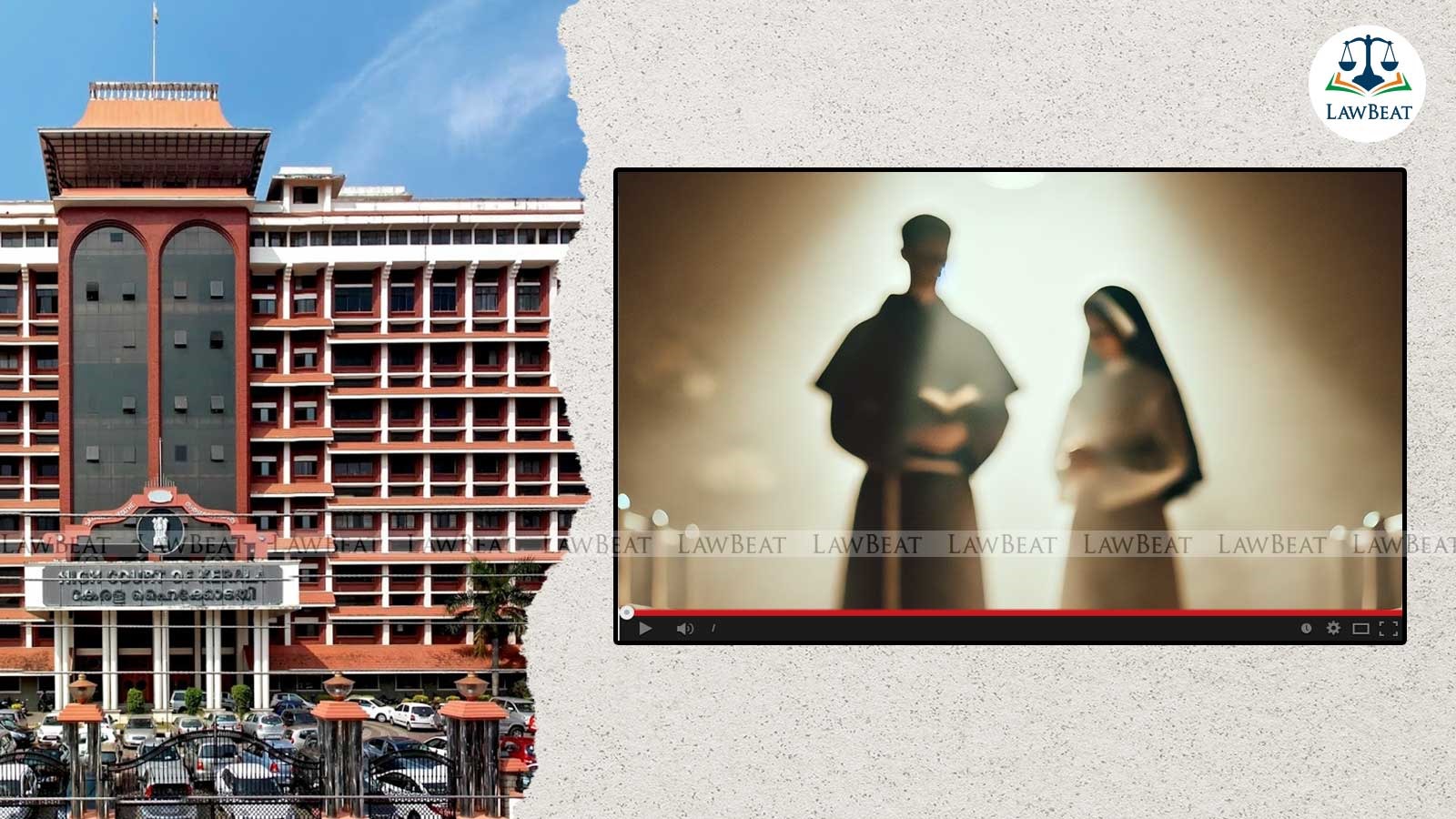Kerala HC Refuses to Quash Case on Video Alleging Nuns as 'Concubines' of Priests, Bishops

The accused argued that the publication of the video served the public good as it contained earlier revelations by two nuns about sexual harassment and torture by priests, asserting that public awareness could help prevent such abuse in the future
The Kerala High Court has rejected a plea to quash the criminal proceedings against a man accused of posting a video on YouTube and Facebook in 2020, alleging that Christian nuns were being made to serve as "concubines" of priests and bishops. The Court found that the allegations made in the video were serious enough to constitute a breach of peace and sought to provoke religious feelings and degrade Christian clergy.
The court, presided over by Justice A. Badharudeen, observed that the provisions of Sections 298 (Uttering words, etc. with deliberate intent to wound religious feelings) and 504 (Intentional insult with intent to provoke breach of the peace) of the Indian Penal Code (IPC), along with the Indecent Representation of Women (Prohibition) Act, were prima facie applicable to the case.
The complaint against the accused, PV Samuel, a 78-year-old man, arose from a video he posted online on June 1, 2020, wherein he allegedly claimed that nuns in the Christian faith were being forced to serve as concubines to priests and bishops. Samuel was subsequently charged under Sections 298 and 504 of the IPC, along with Sections 3 and 4 of the Indecent Representation of Women (Prohibition) Act, 1986, dealing with prohibition of advertisements containing indecent representation of women and prohibition of publication or sending by post of books, pamphlets, etc., containing indecent representation of women, respectively.
The accused approached the High Court seeking to quash the proceedings against him. Advocate C. Unnikrishnan, representing the accused, contended that the video was based on the revelations of two nuns who had earlier disclosed instances of sexual harassment and abuse within the church. According to the accused, the video aimed to bring awareness to these issues to prevent abuse of nuns in the future and it did not intend to insult or provoke anyone. It was also argued that the content of the video did not meet the requirements for the offences under Sections 298 and 504 of the IPC or the Indecent Representation of Women (Prohibition) Act.
The accused relied on the Supreme Court ruling in ‘Fiona Shrikhande v. State of Maharashtra’ [2013], wherein the Court had ruled that for an offence under Section 504 of the IPC to be established, there must be intentional insult of such gravity that it provokes the person insulted to breach public peace or commit an offence. The accused also referenced the case of ‘Mohammed Wajid v. State of UP [2013], where the Supreme Court held that mere abusive language does not constitute an offence under Section 504 and that general rudeness or discourtesy without an explicit intent to provoke a violent response did not amount to a crime under this section. The accused pointed out that in his case, the video did not contain specific language that could be considered abusive under Section 504, making the charges unsustainable and nor did the video contain any material that could lead to public disorder.
The prosecution, represented by Public Prosecutor MP Prashanth, opposed the petition, contending that video was not merely an expression of concern but was designed to intentionally insult Christian nuns, priests, and bishops, and to hurt the religious sentiments of the Christian community. The prosecution also asserted that the video, which was widely circulated on social media, had the potential to incite public unrest and breach of peace within the Christian community.
The High Court examined the key question, “Whether the offences under Sections 298 and 504 of the IPC and the Indecent Representation of Women (Prohibition) Act were prima facie made out?” It rejected the accused’s reliance on Fiona Shrikhande and Mohammed Wajid by pointing out that the facts in the present case were different. The Court noted that “Each case of abusive language shall have to be decided in the light of the facts and circumstances of that case and there cannot be a general proposition that no one commits an offence under S.504, IPC if he merely uses abusive language against the complainant.”
The court further emphasised that the protection of public good or religious purposes under the Act did not apply to materials that intentionally degrade or insult women, particularly when done in a context meant to provoke.
The court noted : “Going by the allegations herein, the arguments advanced by the learned counsel for the petitioner that none of the offences would attract on the facts of the case cannot be appreciated so as to quash the proceedings, since the offences are prima facie made out from the materials.”
Conclusively, the Court held that “prayer for quashment is found unsustainable” while dismissing the petition and directing the trial to proceed in the lower court.
Cause Title: P.V SAMUEL @ SAMUEL KOODAL v STATE OF KERALA [CRL.MC NO. 5451 OF 2024]
